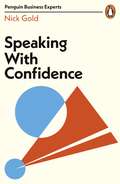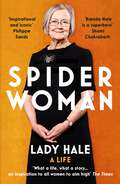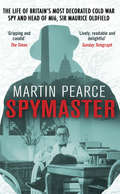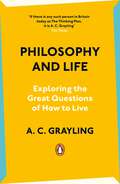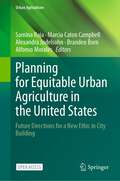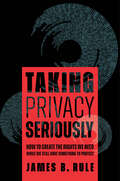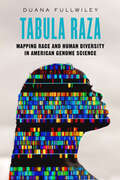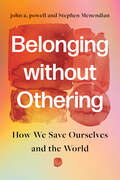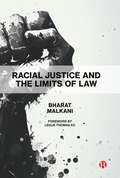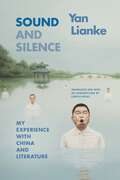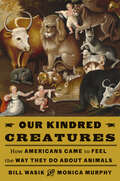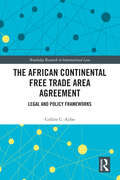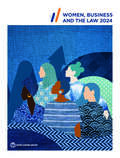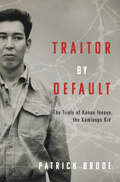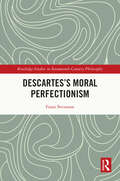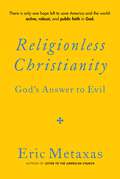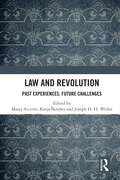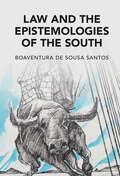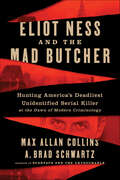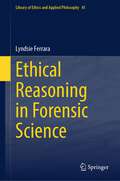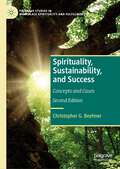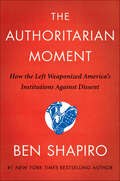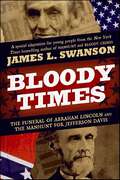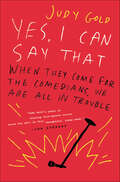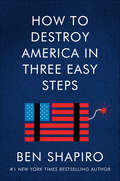- Table View
- List View
Speaking with Confidence (Penguin Business Experts Series)
by Nick GoldDoes the thought of delivering a presentation make your heart skip a beat? Do your pitches fall flat no matter how much preparation you put in? Are you often comparing yourself to more eloquent speakers and wondering how they capture the room?At some point in our careers we will need to speak in front of an audience; whether to present our ideas to a group of five in a meeting, pitch for investment in front of a panel or deliver a keynote speech to one thousand delegates. Yet glossophobia, or the fear of public speaking, is incredibly common and can inhibit our chances of career progression by up to 15%. In Speaking with Confidence, Expert and managing director of Speakers' Corner Nick Gold, shows how anyone can learn to be a confident public speaker and use their surroundings to give them the support and structure they need to achieve maximum impact and success from their speech. His decades of experience coaching and producing some of the best speakers in the country have been condensed here into one expert guide to help you connect with your audience every time.
Spider Woman: A Life – by the former President of the Supreme Court
by Lady HaleLady Hale is an inspirational figure admired for her historic achievements and for the causes she has championed. Spider Woman is her story. As 'a little girl from a little school in a little village in North Yorkshire', she only went into the law because her headteacher told her she wasn't clever enough to study history. She became the most senior judge in the country but it was an unconventional path to the top. How does a self-professed 'girly swot' get ahead in a profession dominated by men? Was it a surprise that the perspectives of women and other disadvantaged groups had been overlooked, or that children's interests were marginalised? A lifelong smasher of glass-ceilings, who took as her motto 'women are equal to everything', her landmark rulings in areas including domestic violence, divorce, mental health and equality were her attempt to correct that. As President of the Supreme Court, Lady Hale won global attention in finding the 2019 prorogation of Parliament to be unlawful. Yet that dramatic moment was merely the pinnacle of a career throughout which she was hailed as a pioneering reformer. Wise, warm and inspiring, Spider Woman shows how the law shapes our world and supports us in crisis. It is the story of how Lady Hale found that she could overcome the odds, which shows that anyone from similar beginnings will find that they can cope too.
Spymaster: The Life of Britain's Most Decorated Cold War Spy and Head of MI6, Sir Maurice Oldfield
by Martin Pearce'I cannot think of a better biography of a spy chief'Richard Davenport-Hines, The SpectatorSir Maurice Oldfield was one of the most important British spies of the Cold War era. _________A farmer’s son from a provincial grammar school who found himself accidentally plunged into the world of espionage, Sir Maurice was the first Chief of MI6 who didn’t come to the role via the traditional public school and Oxbridge route. Oldfield was the voice of British Intelligence in Washington at the time of the Cuban Missile Crisis and the assassination of JFK, and was largely responsible for keeping the UK out of the Vietnam War. Working his way to the top of the secret service, he took on the job of rebuilding confidence in the British Secret Service in the wake of the Philby, Burgess and Maclean spy scandals.This is the fascinating life story, told in detail for the first time, of a complex, likeable character as well as a formidable intelligence chief.
Philosophy and Life: Exploring the Great Questions of How to Live
by A. C. Grayling'Grayling brings satisfying order to daunting subjects' Steven Pinker'An enthusiastic thinker who embraces humour, common sense and lucidity' Independent_______________From the eminent philosopher, an authoritative exploration of the great questions of how to live'There is a question everyone has to ask and answer - in fact, has to keep on asking and keep on answering. It is, 'How should I live my life?' meaning, 'What values shall I live by? 'What sort of person should I be? What shall I aim for?' The great majority of people do not ask this question, they merely answer it unthinkingly, by adopting conventional views of life and what matters in it...'From Stoics to existentialists, in philosophy and literature, discussion of the philosophy of life -- of love and death, of courage, fortitude and wisdom -- challenges us all to think about what kinds of life are truly worth living. In this summation of a lifetime thinking and writing about this great question, A. C. Grayling explores with clarity and depth the ideas that each of us must use in answering it for ourselves.Drawing on the lives, experiences and works of a fantastically eclectic range of thinkers -- taking in not only philosophers such as Confucius, Seneca and Nietzsche, but also authors from Shakespeare to Ursula LeGuin, and modern thinkers such as Martha Nussbaum and Bernard Williams - Philosophy and Life brings together wisdom from across eras and continents in a tour de force on the philosophy of being human in a complicated world.
Planning for Equitable Urban Agriculture in the United States: Future Directions for a New Ethic in City Building (Urban Agriculture)
by Samina Raja Marcia Caton Campbell Alexandra Judelsohn Branden Born Alfonso MoralesThis open access book, building on the legacy of food systems scholar and advocate, Jerome Kaufman, examines the potential and pitfalls of planning for urban agriculture (UA) in the United States, especially in how questions of ethics and equity are addressed. The book is organized into six sections. Written by a team of scholars and practitioners, the book covers a comprehensive array of topics ranging from theory to practice of planning for equitable urban agriculture. Section 1 makes the case for re-imagining agriculture as central to urban landscapes, and unpacks why, how, and when planning should support UA, and more broadly food systems. Section 2, written by early career and seasoned scholars, provides a theoretical foundation for the book. Section 3, written by teams of scholars and community partners, examines how civic agriculture is unfolding across urban landscapes, led largely by community organizations. Section 4, written by planning practitionersand scholars, documents local government planning tied to urban agriculture, focusing especially on how they address questions of equity. Section 5 explores UA as a locus of pedagogy of equity. Section 6 places the UA movement in the US within a global context, and concludes with ideas and challenges for the future. The book concludes with a call for planning as public nurturance – an approach that can be illustrated through urban agriculture. Planning as public nurturance is a value-explicit process that centers an ethics of care, especially protecting the interests of publics that are marginalized. It builds the capacity of marginalized groups to authentically co-design and participate in planning/policy processes. Such a planning approach requires that progress toward equitable outcomes is consistently evaluated through accountability measures. And, finally, such an approach requires attention to structural and institutional inequities. Addressing these four elements is more likelyto create a condition under which urban agriculture may be used as a lever in the planning and development of more just and equitable cities. This is an open access book.This is an open access book.
Taking Privacy Seriously: How to Create the Rights We Need While We Still Have Something to Protect
by James B. RuleOther books remind us of what we already know—that privacy is under great pressure. James Rule provides a step-by-step plan to create a significantly more private and authentically democratic world. Taking Privacy Seriously offers both a concise, hard-hitting assessment of the origins of today’s privacy-eroding practices and a roadmap for creating robust new individual rights over our personal data. Rule proposes eleven key reforms in the control and use of personal information, all aimed at redressing the balance of power between ordinary citizens and data-hungry corporate and government institutions. What a privacy-deprived America needs most is not less technology, Rule argues, but profound political realignment. His eleven proposed reforms range from launching a major public-works investment consisting of a series of websites publicly documenting the personal data uses of nearly all government and private institutions; to instating a right for any citizen to withdraw from any personal data system not required by law; to creating a universal property right over commercial exploitation of data on oneself—so that no company or other organization could profit from use or sale of such data without permission. Succinct and compelling, Taking Privacy Seriously explains how we can refashion information technologies so that they serve human needs, not the other way around.
Tabula Raza: Mapping Race and Human Diversity in American Genome Science (Atelier: Ethnographic Inquiry in the Twenty-First Century #14)
by Duana FullwileyDuana Fullwiley has penned an intimate chronicle of laboratory life in the genomic age. She presents many of the influential scientists at the forefront of genetics who have redefined how we practice medicine and law and understand ancestry in an era of big data and waning privacy. Exceedingly relatable and human, the scientists in these pages often struggle for visibility, teeter on the tightrope of inclusion, and work tirelessly to imprint the future. As they actively imagine a more equal and just world, they often find themselves ensnared in reproducing timeworn conceits of race and racism that can seed the same health disparities they hope to resolve. Nothing dynamic can live for long as a blank slate, an innocent tabula rasa. But how the blank slate of the once-raceless human genome became one of racial differences, in various forms of what Fullwiley calls the tabula raza, has a very specific and familiar history—one that has cycled through the ages in unexpected ways.
Belonging without Othering: How We Save Ourselves and the World
by john a. powell Stephen MenendianThe root of all inequality is the process of othering – and its solution is the practice of belonging We all yearn for connection and community, but we live in a time when calls for further division along the well-wrought lines of religion, race, ethnicity, caste, and sexuality are pervasive. This ubiquitous yet elusive problem feeds on fears – created, inherited – of the "other." While the much-touted diversity, equity, and inclusion initiatives are undeniably failing, and activists narrowly focus on specific and sometimes conflicting communities, Belonging without Othering prescribes a new approach that encourages us to turn toward one another in unprecedented and radical ways. The pressures that separate us have a common root: our tendency to cast people and groups in irreconcilable terms – or the process of "othering." This book gives vital language to this universal problem, unveiling its machinery at work across time and around the world. To subvert it, john a. powell and Stephen Menendian make a powerful and sweeping case for adopting a paradigm of belonging that does not require the creation of an "other." This new paradigm hinges on transitioning from narrow to expansive identities – even if that means challenging seemingly benevolent forms of community-building based on othering. As the threat of authoritarianism grows across the globe, this book makes the case that belonging without othering is the necessary, but not the inevitable, next step in our long journey toward creating truly equitable and thriving societies. The authors argue that we must build institutions, cultivate practices, and orient ourselves toward a shared future, not only to heal ourselves, but perhaps to save our planet as well. Brimming with clear guidance, sparkling insights, and specific examples and practices, Belonging without Othering is a future-oriented exploration that ushers us in a more hopeful direction.
Racial Justice and the Limits of Law
by Bharat MalkaniRacial justice is never far from the headlines. The Windrush Scandal, the toppling of the statue of Edward Colston and racism within the police have all recently captured the public’s attention and generated legal action. But, although the ideals of the legal system such as fairness and equality, seem allied to the struggle for racial justice, all too often campaigners have been let down by the system. This book examines law’s troubled relationship with racial justice. It explains that law’s historical role in creating and perpetuating racial injustices continues to stifle its ability to advance the cause of racial justice today. Both a lawyer’s guide to anti-racism and an anti-racist’s guide to legal action, it unites these perspectives to help both groups understand how to use the law to tackle racial injustices.
Sound and Silence: My Experience with China and Literature (Sinotheory)
by Lianke YanYan Lianke is a world-renowned author of novels, short stories, and essays whose provocative and nuanced writing explores the reality of everyday life in contemporary China. In Sound and Silence, Yan compares his literary project to a blind man carrying a flashlight whose role is to help others perceive the darkness that surrounds them. Often described as China’s most censored author, Yan reflects candidly on literary censorship in contemporary China. He outlines the Chinese state’s project of national amnesia that suppresses memories of past crises and social traumas. Although being banned in China is often a selling point in foreign markets, Yan argues that there is no requisite correlation between censorship and literary quality. Among other topics, Yan also examines the impact of American literature on Chinese literature in the 1980s and 1990s. Encapsulating his perspectives on life, writing, and literary history, Sound and Silence includes an introduction by translator Carlos Rojas and an afterword by Yan.
Our Kindred Creatures: How Americans Came to Feel the Way They Do About Animals
by Bill Wasik Monica MurphyA compassionate, sweeping history of the transformation in American attitudes toward animals by the best-selling authors of RabidOver just a few decades at the end of the nineteenth century, the United States underwent a moral revolution on behalf of animals. Before the Civil War, animals' suffering had rarely been discussed; horses pulling carriages and carts were routinely beaten in public view, and dogs were pitted against each other for entertainment and gambling. But in 1866, a group of activists began a dramatic campaign to change the nation&’s laws and norms, and by the century&’s end, most Americans had adopted a very different way of thinking and feeling about the animals in their midst.In Our Kindred Creatures, Bill Wasik, editorial director of The New York Times Magazine, and veterinarian Monica Murphy offer a fascinating history of this crusade and the battles it sparked in American life. On the side of reform were such leaders as George Angell, the inspirational head of Massachusetts&’s animal-welfare society and the American publisher of the novel Black Beauty; Henry Bergh, founder of the American Society for the Prevention of Cruelty to Animals; Caroline White of Philadelphia, who fought against medical experiments that used live animals; and many more, including some of the nation&’s earliest veterinarians and conservationists. Caught in the movement&’s crosshairs were transformational figures in their own right: animal impresarios such as P. T. Barnum, industrial meat barons such as Philip D. Armour, and the nation&’s rising medical establishment, all of whom put forward their own, very different sets of modern norms about how animals should be treated.In recounting this remarkable period of moral transition—which, by the turn of the twentieth century, would give birth to the attitudes we hold toward animals today—Wasik and Murphy challenge us to consider the obligations we still have to all our kindred creatures.
The African Continental Free Trade Area Agreement: Legal and Policy Frameworks (Routledge Research in International Law)
by Collins C. AjiboThis book provides a comprehensive assessment of African economic integration through the lens of International Economic Law. The analysis is contextualised within the prevailing regional economic integrations, the WTO and the peculiarity of the AfCFTA.Through legal analysis, bolstered by economic and political dimensions, the book illustrates the complex interplay of diverse factors that shape the AfCFTA. Each chapter presents a separate element of economic integration within the principles of international economic law, with an interdisciplinary approach encompassing legal, economic and political perspectives. Covering topics such as economic integration and multilateralism, market access, exceptions, trade facilitation, rules of origin and non-tariff barriers, the book also discusses trade remedies, dispute settlement, investment, intellectual property and completion policy. Additionally, human rights, corporate social responsibility and sustainable development principles are discussed, alongside small and medium-sized enterprises (SMEs), digital trade and gender in economic integration.The book will be of interest to students, instructors, practitioners and nonpractitioners in this area of international economic law.
Women, Business and the Law 2024 (Women, Business and the Law)
by World BankWomen, Business and the Law 2024 is the 10th in a series of annual studies measuring the enabling conditions that affect women’s economic opportunity in 190 economies. To present a more complete picture of the global environment that enables women’s socioeconomic participation, this year Women, Business and the Law introduces two new indicators—Safety and Childcare—and presents findings on the implementation gap between laws (de jure) and how they function in practice (de facto). This study presents three indexes: (1) legal frameworks, (2) supportive frameworks (policies, institutions, services, data, budget, and access to justice), and (3) expert opinions on women’s rights in practice in the areas measured. The study’s 10 indicators—Safety, Mobility, Workplace, Pay, Marriage, Parenthood, Childcare, Entrepreneurship, Assets, and Pension—are structured around the different stages of a woman’s working life. Findings from this new research can inform policy discussions to ensure women’s full and equal participation in the economy. The indicators build evidence of the critical relationship between legal gender equality and women’s employment and entrepreneurship. Data in Women, Business and the Law 2024 are current as of October 1, 2023. wbl.worldbank.org
Traitor By Default: The Trials of Kanao Inouye, the Kamloops Kid
by Patrick BrodeAt the end of World War II, a young Japanese Canadian would stand trial and face execution for having committed war crimes and betraying his country.One of the most bizarre stories to emerge at the end of the Second World War was that of Kanao Inouye. Born in Kamloops, B.C., in 1916, he had relocated to his ancestral homeland of Japan, and by 1942 was a translator for the Japanese army. He was assigned to the prisoner of war camp in Hong Kong where he became infamous as one of the “most sadistic guards” over the Canadian survivors of the Battle of Hong Kong. Scores of prisoners would attest to his brutality administered in revenge for the treatment he had received growing up in Canada.His reputation was such that he was quickly apprehended after the war and faced charges of war crimes. But his subsequent trials became mired in questions as to who he really was. Was he a Canadian forced to serve in the Japanese military machine? Or was he a devoted soldier of his emperor obeying his superiors?
Descartes’s Moral Perfectionism (Routledge Studies in Seventeenth-Century Philosophy)
by Frans SvenssonThis book offers a novel and comprehensive interpretation of Descartes’s moral philosophy. In contrast to other influential interpretations, the book argues that the central tenet of his ethical thought is that each person ought to live in the way that is most conducive to their degree of overall perfection.While Descartes’s ethical thought has attracted only a very modest amount of attention among scholars, this book demonstrates that it constitutes an important and integral component of his philosophical project as a whole. It argues that Descartes’s ethics constitutes a form of moral perfectionism. In the Cartesian picture, we satisfy this requirement of perfection by using our free will well in all our conduct, something which is also necessary for obtaining happiness for ourselves. To be guaranteed happiness, however, we need to acquire the virtue of generosity, which, besides a habit of using one’s free will well, entails a habit of being attentive in one’s thought to various truths about oneself and about the world we live in. Descartes offers an interesting attempt to make living well depend entirely on ourselves and not on fate or fortune. He also leaves room for the presence of passions within such a life and for acknowledging that even fully virtuous persons’ lives may differ in their degrees of overall perfection.Descartes’s Moral Perfectionism will appeal to scholars and graduate students working on Descartes, the history of early modern philosophy, and the history of ethics.
Religionless Christianity: God's Answer to Evil
by Eric MetaxasChristianity is not about rituals but changed hearts. In the prophetic tradition of Dietrich Bonhoeffer, Eric Metaxas calls slumbering Christians to battle.Picking up where he left off in his electrifying Letter to the American Church, Eric Metaxas renews and deepens his call to believers not to &“practice&” their faith but to live it—heroically and with joy. Invoking famous but misunderstood words of Dietrich Bonhoeffer, he shows that God&’s answer to evil is &“religionless Christianity&”—the rejection of religiosity and the embrace of a living and active faith, one that consumes the whole person and affects every aspect of his life. The awakening of this faith will bring revival, a &“new birth of freedom&” and a renaissance of Christian culture.
Law and Revolution: Past Experiences, Future Challenges
by Matej Accetto Katja Škrubej Joseph H. H. WeilerThe last one hundred years have seen a number of events that could be perceived as disruptive challenges to the normal operation of the legal order. Some have been disruptive innovations of technologies or business practices, others social changes or constitutional transformations, further buttressed by the impact of globalisation and interdependence affecting the development of international, transnational and global law. Coincidentally, this period of one hundred years has been bookended by two pandemics, themselves disruptive realities testing the resilience as well as the adaptability of the legal regimes. A hundred years ago, the founding dean of a newly established law faculty beginning its mission amid the ashes of the First World War and the disintegration of the only remaining European empire gave an opening lecture exploring the role of law and judges in the face of revolutionary societal changes. Drawing upon that important text, this edited volume explores similar challenges for law brought about by various disruptive realities. The collection looks at the past as well as the future. Following the text of the opening lecture by Pitamic, the contributions are grouped under five headings, dealing with the law and revolution in 1918, the challenges posed for law by the seemingly more gradual political or technological transformations, the effects of globalisation and the changing world, with the final contributions reassessing the law, its methodologies and traditional paradigms including, in the epilogue, the challenges posed for law the recent disruptive reality of the Covid-19 pandemic. The book will be of interest to academics, researchers and policy-makers working in the areas of legal history, jurisprudence, constitutional law, law and politics, and law and technology.
Law and the Epistemologies of the South (Cambridge Studies in Law and Society)
by Boaventura de Sousa SantosModern state law excludes populations, peoples, and social groups by making them invisible, irrelevant, or dangerous. In this book, Boaventura de Sousa Santos offers a radical critique of the law and develops an innovative paradigm of socio-legal studies which is based on the historical experience of the Global South. He traces the history of modern law as an abyssal law, or a kind of law that is theoretically invisible yet implements profound exclusions in practice. This abyssal line has been the key procedure used by modern modes of domination – capitalism, colonialism, and patriarchy – to divide people into two groups, the metropolitan and the colonial, or the fully human and the sub-human. Crucially, de Sousa Santos rejects the decadent pessimism that claims that we are living through 'the end of history'. Instead, this book offers practical, hopeful alternatives to social exclusion and modern legal domination, aiming to make post-abyssal legal utopias a reality.
Eliot Ness and the Mad Butcher: Hunting America's Deadliest Unidentified Serial Killer at the Dawn of Modern Criminology
by Max Allan Collins A. Brad Schwartz"The thrilling history of the torso murderer. The tale of the ‘Untouchable’ who got Al Capone but failed to solve his goriest case." —Dan Jones, The Sunday TimesIn the spirit of Devil in the White City comes a true detective tale of the highest standard: the haunting story of Eliot Ness's forgotten final case–his years-long hunt for "The Mad Butcher of Kingsbury Run," a serial killer who terrorized Cleveland through the Great Depression. “After helping to put Al Capone behind bars, lawman Eliot Ness came to Cleveland, where he did battle with a vicious killer. ... Even Ness was stumped trying to apprehend the ‘torso murderer’ responsible for a series of ghoulish killings. ... The authors have done Ness justice." —Wall Street JournalIn 1934, the nation’s most legendary crime-fighter–fresh from taking on the greatest gangster in American history–arrived in Cleveland, a corrupt and dangerous town about to host a world's fair. It was to be his coronation, as well as the city's. Instead, terror descended, as headless bodies started turning up. The young detective, already battling the mob and crooked cops, found his drive to transform American policing subverted by a menace largely unknown to law enforcement: a serial murderer.Eliot Ness's greatest case had begun. Now, Max Allan Collins and A. Brad Schwartz–the acclaimed writing team behind Scarface and the Untouchable–uncover this lost crime epic, delivering a gripping and unforgettable nonfiction account based on decades of groundbreaking research.Ness had risen to fame in 1931 for leading the “Untouchables,” which helped put Chicago’s Al Capone behind bars. As Cleveland's public safety director, in charge of the police and fire departments, Ness offered a radical new vision for better law enforcement. Crime-ridden and devastated by the Depression, Cleveland was preparing for a star-turn itself: in 1936, it would host the "Great Lakes Exposition," which would be visited by seven million people. Late in the summer of 1934, however, pieces of a woman’s body began washing up on the Lake Erie shore–first her ribs, then part of her backbone, then the lower half of her torso. The body count soon grew to five, then ten, then more, all dismembered in gruesome ways.As Ness zeroed in on a suspect–a doctor tied to a prominent political family–powerful forces thwarted his quest for justice. In this battle between a flawed hero and a twisted monster–by turns horror story, political drama, and detective thriller–Collins and Schwartz find an American tragedy, classic in structure, epic in scope.
Ethical Reasoning in Forensic Science (Library of Ethics and Applied Philosophy #41)
by Lyndsie FerraraThis book explores the impact of ethical reasoning in forensic science and demonstrates that it is in fact a foundational skill required by those engaged in the field. Forensic science is viewed as a mechanism to aid the criminal justice system in finding truth, but failures within the field contribute to the growing injustice facing society. The author recognizes these failings and brings a new perspective by establishing bioethical principles as a foundation for improving ethical reasoning skills. These skills are a critical component of forensic science education for upcoming professionals. While other books focus on egregious cases of ethical misconduct, this text highlights the daily decisions and issues that occur during the forensic investigation and analysis processes. It is written for future forensic professionals and forensic science educators, as well as those individuals already working in the forensic science field.
Spirituality, Sustainability, and Success: Concepts and Cases (Palgrave Studies in Workplace Spirituality and Fulfillment)
by Christopher G. BeehnerThis book offers a pragmatic approach to the benefits of spirituality and sustainability for both individual and organizational success. It introduces sustainability and workplace spirituality as contemporary solutions to the challenging organizational environment. The first few chapters introduce the fundamentals of spirituality, workplace spirituality, and sustainability. The author then demonstrates how the three qualities are beneficial in achieving personal and business success. Through the combination of synthesized research summaries and case studies of individuals and organizations, this book offers readers a fresh perspective on the importance of spirituality and sustainability to organizational performance.
The Authoritarian Moment: How the Left Weaponized America's Institutions Against Dissent
by Ben ShapiroNew York Times BestsellerHow far are Americans willing to go to force each other to fall in line?According to the establishment media, the intelligentsia, and our political chattering class, the greatest threat to American freedom lies in right-wing authoritarianism. We’ve heard that some 75 million Americans who voted for Donald Trump represent the rise of American fascism; that conservatives have allowed authoritarianism to bloom in their midst, creating a grave danger for the republic.But what if the true authoritarian threat to America doesn’t come from the political right, but from the supposedly anti-fascist left?There are certainly totalitarians on the political right. But statistically, they represent a fringe movement with little institutional clout. The authoritarian left, meanwhile, is ascendant in nearly every area of American life. A small number of leftists—college-educated, coastal, and uncompromising—have not just taken over the Democratic Party but our corporations, our universities, our scientific establishment, our cultural institutions. And they have used their newfound power to silence their opposition.The authoritarian Left is aggressively insistent that everyone must conform to its values, demanding submission and conformity. The dogmatic Left is obsessed with putting people in categories and changing human nature. Everyone who opposes it must be destroyed.Ben Shapiro looks at everything from pop culture to the Frankfurt school, social media to the Founding Fathers, to explain the origins of our turn to tyranny, and why so many seem blind to it.More than a catalog of bad actors and intemperate acts,The Authoritarian Moment lays bare the intolerance and rigidity creeping into all American ideology – and prescribes the solution to ending the authoritarianism that threatens our future.
Bloody Times: The Funeral of Abraham Lincoln and the Manhunt for Jefferson Davis
by James L. SwansonNew York Times bestselling author James L. Swanson brings to life the fast-paced, suspense-filled story of Abraham Lincoln's and Jefferson Davis's final journeys through our wounded nation following the Civil War. This middle grade nonfiction book is an excellent choice for tween readers in grades 7 to 8, especially during homeschooling. It’s a fun way to keep your child entertained and engaged while not in the classroom.This suspense-filled true-crime thriller—the young readers’ adaptation of Swanson’s BloodyCrimes—explores two epic events of the Civil War era: the manhunt to apprehend Confederate president Jefferson Davis in the wake of Abraham Lincoln’s assassination and the momentous 20-day funeral pageant that brought President Lincoln’s body from Washington, DC to his home in Springfield. Full of fascinating twists and turns, and lavishly illustrated with dozens of rare historical images, Bloody Times captures the riveting stories of these two fallen leaders who changed the course of history. It’s perfect for young readers who enjoy dramatic nonfiction tales from the likes of Steve Sheinkin and Patricia McCormick.This book contains a note from the author, a glossary, a list of important Civil War figures, and a guide to visiting the historic sites mentioned within. A companion to the bestselling and highly acclaimed Chasing Lincoln's Killer.
Yes, I Can Say That: When They Come for the Comedians, We Are All in Trouble
by Judy Gold"No one makes me laugh harder than Judy Gold. If I had to pick one comedian to write a book about free speech, it would be Judy." – Amy SchumerFrom award-winning comedian Judy Gold, a concise, funny, and thoughtful polemic on the current assault on comedy, that explores how it is undermining free speech and a fundamental attack against the integrity of the art.From Mae West and Lenny Bruce to Richard Pryor and Howard Stern to Kathy Griffith and Kevin Hart, comedians have long been under fire for using provocative, often taboo subjects to challenge mores and get a laugh. But in the age of social media, comedians are at greater risk of being silenced, enduring shaming, threats, and damaged careers because of angry, censorious electronic mobs. But while comedians’ work has often been used to rile up detractors, a new threat has emerged from the left: identity politics and notions like "safetyism" and trigger warnings that are now creating a cultural and political standard that runs perilously close to censorship. From college campuses to the Oscars, comics are being censured for old jokes, long-standing comedy traditions, unfinished bits and old material that instead of being forgotten, go viral. For comics like Judy Gold, today’s attacks on comics would have Richard Pryor and Lenny Bruce "rolling in their graves." "No one has the right to tell comics what they can or cannot joke about. Do you tell artists what they can or cannot paint?" she asks. Freedom of speech is fundamental for great stand-up comedy. Humor is the most palatable way to discuss a subversive or taboo topic, but it better be funny. A comic's observations are deliberately delivered to entertain, provoke, and lead to an exchange of ideas. "We are truth tellers." More important, the tolerance of free speech is essential for a healthy democracy.In addition to offering readers a quick study on the history of comedy and the arts (noting such historical reference points as The Hays Code) and the threats to them, Gold takes readers on a hilarious ride with chapters such as "Thank God Don Rickles is Dead," as well as her singular take on "micro-aggressions," such as:Person: "OMG! You’re a lesbian? I had no idea. I mean you wear make-up. When did you become a lesbian?"Judy Gold: "Coincidently, right after I met you!" (micro-assault!)In this era of "fake news," partisan politics, and heated rhetoric, the need to protect free speech has never been greater, especially for comics, who often serve as the canaries in the coalmine, monitoring the health of our democracy. Yes I Can Say That is a funny and provocative look at how safe spaces are the very antithesis of comedy as an art form—and an urgent call to arms to protect our most fundamental Constitutional right. There's a good reason it was the FIRST amendment.
How to Destroy America in Three Easy Steps
by Ben ShapiroA NEW YORK TIMES BESTSELLER!A growing number of Americans want to tear down what it’s taken us 250 years to build—and they’ll start by canceling our shared history, ideals, and culture.Traditional areas of civic agreement are vanishing. We can’t agree on what makes America special. We can’t even agree that America is special. We’re coming to the point that we can’t even agree what the word America itself means. “Disintegrationists” say we’re stronger together, but their assault on America’s history, philosophy, and culture will only tear us apart.Who are the disintegrationists? From Howard Zinn’s A People’s History of the United States to the New York Times’ 1619 project, many modern analyses view American history through the lens of competing oppressions, a racist and corrupt experiment from the very beginning. They see American philosophy as a lie – beautiful words pasted over a thoroughly rotted system. They see America’s culture of rights as a façade that merely reinforces traditional hierarchies of power, instead of being the only culture that guarantees freedom for individuals.Disintegrationist attacks on the values that built our nation are insidious because they replace each foundational belief, from the rights to free speech and self-defense to the importance of marriage and faith communities, with nothing more than an increased reliance on the government. This twisted disintegrationist vision replaces the traditional “unionist” understanding that all Americans are united in a shared striving toward the perfection of universal ideals.How to Destroy America in Three Easy Steps shows that to be a cohesive nation we have to uphold foundational truths about ourselves, our history, and reality itself—to be unionists instead of disintegrationists. Shapiro offers a vital warning that if we don’t recover these shared truths, our future—our union—as a great country is threatened with destruction.
